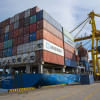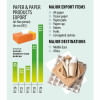An investor’s guide to export from Bangladesh

In Bangladesh, the export segment plays a critical role in driving economic growth by bringing in the much-needed foreign earnings. Recognising this, the government provides extensive support to foster the growth of exporters, offering a range of fiscal and non-fiscal incentives to stimulate trade.
One of the key financial supports available to the exporters includes access to soft loans through programmes such as the Export Development Fund, Export Facilitation Pre-finance Fund, and Pre-Shipment Refinance Programme.
Additionally, cash incentives are provided on proceeds received, acting as a direct cashback facility for exporters from specific sectors.
For export-oriented businesses, duty-free imports of raw materials and capital machinery are permitted under a customs bond licence, or they can avail duty drawback on similar imports post-export.
Export income is also exempt from VAT payments, further easing the financial burden on exporters.
The government has also established specialised investment zones across the country, including export processing zones, economic zones, and hi-tech parks, to support businesses that meet specific criteria such as part or full foreign ownership.
These zones offer significant benefits, including multi-year tax holidays, duty-free imports, and the free movement of foreign currency across borders.
Fully foreign-owned entities in these zones can initiate open account trade for both import and export, a practice typically restricted to major government and infrastructure projects.
For businesses outside these zones, cross-border exports under open account are subject to specific guidelines set by Bangladesh Bank (BB).
The exporters must submit a set of shipping documents to authorised banks to receive export proceeds, including underlying contracts or letters of credit (LCs), commercial invoices with approved (Harmonised System (HS) codes, transport documents, and bills of export.
Raw materials can be imported through quasi back-to-back LCs, where exporters leverage their export orders to open subsequent LCs for the procurement of necessary inputs.
Payment for these raw materials is typically deferred and settled from export proceeds.
To control the repatriation of funds, all carriers must issue title documents, such as a Bill of Lading (BL), to the order of the exporters' bank in Bangladesh, except in cases of advance payment.
Exporters can also open foreign currency accounts like Exporter Retention Quota (ERQ), Single Pool Account, and 30 Days Foreign Currency Account to manage their earnings more flexibly.
Funds equivalent to back-to-back import obligations are held in Single Pool Accounts and 30 Days Foreign Currency Accounts until payment maturity while ERQ accounts allow for indefinite retention of a proportion of earnings for business purposes.
Export proceeds must be repatriated within 120 days of shipment, a priority facilitated by Standard Chartered's extensive network, which offers low-cost pre-payment to exporters under Supplier Finance Programmes with major global buyers.
Exporters require an Export Registration Certificate (ERC) from the Office of Chief Controller of Imports & Exports (CCI&E) and also the rules set in the latest version of Export Policy and Bangladesh Bank's Guidelines for Foreign Exchange Transactions (GFET), 2018 Vol 1 before initiating cross-border export.
The types of exporters include direct exporters dealing in finished goods such as footwear, readymade garments, and pharmaceuticals; deemed exporters who supply raw materials and accessories to direct exporters; and service exporters, such as IT and software providers, who do not require an ERC.
For export, all Incoterms are allowed except Delivered at Place (DAP), Delivered at Place Unloaded (DPU) and Delivered Duty Paid (DDP).
Simply put, regulator here discourages trade on terms which bring the possibility of additional deduction on inward remittance for the exporters.
Navigating the intricate landscape of export in Bangladesh may seem daunting at first, but with the right knowledge and resources, it becomes a pathway to immense opportunities.
As Bangladesh strives to improve its ease of doing business index, a comprehensive guide to export can help investors to get a head start.
Bangladesh's commitment to supporting its exporters is evident in the extensive range of incentives and reforms being implemented.
As exporters tap into the diverse and vibrant global markets, they not only contribute to their own growth but also to the economic dynamism of Bangladesh. With every successful transaction, they reinforce the nation's reputation for resilience, innovation, and excellence, driving our nation forward on its journey towards a new era of prosperity and global integration.
The author is the country head of transaction banking at Standard Chartered. Bangladesh.

 For all latest news, follow The Daily Star's Google News channel.
For all latest news, follow The Daily Star's Google News channel. 







Comments